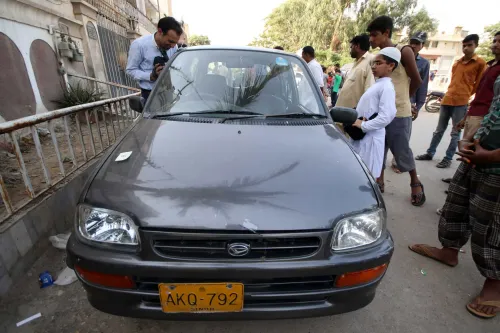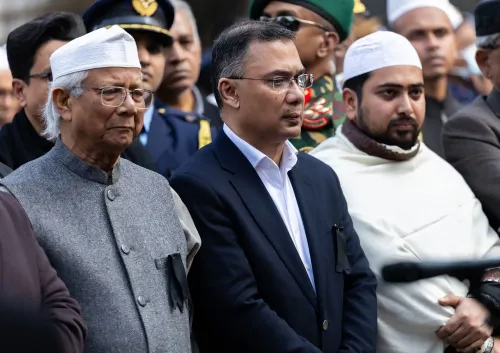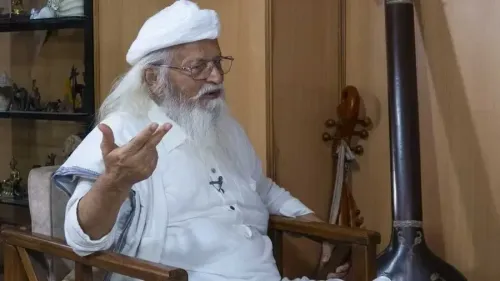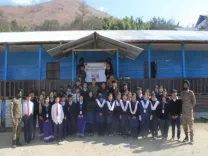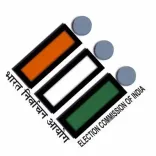Human Rights Report: Attacks on Hindu and Ahmadiyya Communities in Bangladesh
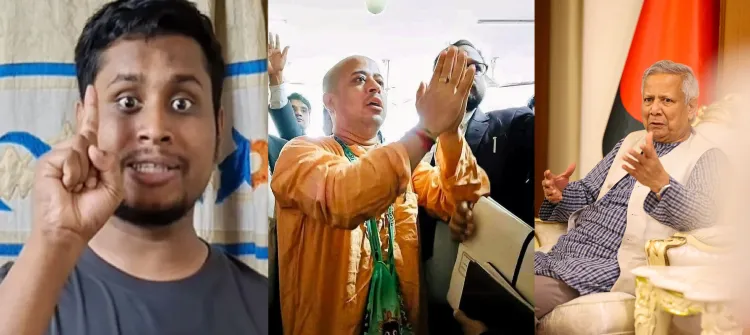
Synopsis
Key Takeaways
- Extremist groups are attacking Hindu and Ahmadiyya minorities in Bangladesh.
- Human Rights Watch reports a troubling pattern of abuses by security forces.
- Former Prime Minister Sheikh Hasina's ouster has exacerbated violence against minorities.
- The interim government has been urged to protect free speech and ensure legal representation.
- International concern is growing over the situation in Bangladesh.
Dhaka, Jan 28 (NationPress) Groups advocating extremist Islam are launching assaults on minority communities, particularly Hindus and Ahmadiyyas in Bangladesh, as revealed in a recent report by Human Rights Watch (HRW). The report also underscores a troubling pattern of abuses by security forces following the ouster of former Prime Minister Sheikh Hasina last August, specifically targeting supporters of the Awami League and journalists.
The 50-page document, titled 'After the Monsoon Revolution: A Roadmap to Lasting Security Sector Reform in Bangladesh', presents several recommendations to the interim government led by Muhammad Yunus, including requests for technical assistance and ongoing monitoring from the Office of the High Commissioner for Human Rights and other UN rights experts to guarantee effective reforms.
The report highlights an increase in assaults on Hindu minorities since the fall of the Hasina administration, raising international alarm. Numerous commentators informed HRW that these attacks on Hindus and other religious minorities stem from their historical support for the Awami League.
“There are repeated allegations of violent assaults against Hindus and other minorities, with police failing to provide adequate protection,” the report states.
The arrest of Hindu priest Chinmoy Krishna Das, a former member of the International Society for Krishna Consciousness (ISKCON), is labeled as “another alarming indication” regarding freedom of expression in Bangladesh.
“Das's arrest occurred during a time of escalating concern over attacks on Hindu minorities. The interim government confirmed that at least 88 cases of communal violence were documented between August 5 and October 22, leading to the arrest of 70 individuals. Hindu organizations report hundreds of incidents of vandalism against Hindu businesses, residences, and places of worship,” the report elaborates.
The Chittagong Lawyers' Association has pressured its members not to represent Das, and the report acknowledges the challenges the spiritual leader faces in securing legal representation. A Hindu lawyer stated, “Lawyers fear representing Chinmoy due to threats of mob violence. We all have families to protect.”
The New York-based human rights organization also urged the interim government to ensure that no individuals are detained unlawfully or arbitrarily.
According to the report, from August 6 to September 25, police in Bangladesh filed cases against 92,486 individuals, primarily related to murder. Nearly 400 former ministers, parliament members, and other officials from the Awami League have been implicated in over 1,170 cases, which include hundreds of unnamed individuals, with over 200 cases filed against Sheikh Hasina.
As of November, the report indicates that authorities in Dhaka filed murder charges against at least 140 journalists concerning their coverage of the student revolution and revoked more than 150 press accreditations necessary for attending official events.
“Yunus has emphasized his administration's commitment to free speech. However, authorities under the interim government have suppressed journalists perceived to be sympathetic to the previous government,” the report stated.
“The interim government must urgently prohibit the filing of cases against unnamed defendants and mass arrest warrants, and amend laws that permit vague and excessively broad charges targeting critics. Courts should act promptly to ensure that anyone detained is quickly and safely brought before a judge. All detention centers should be made public and open to independent inspection,” it added.
HRW recommended that the interim government of Bangladesh pursue a resolution at the United Nations Human Rights Council to establish a mechanism for lasting change.
The report is based on comprehensive research and documentation within Bangladesh, along with recent interviews involving human rights activists, members of the interim government, and current and former law enforcement and military officials.


